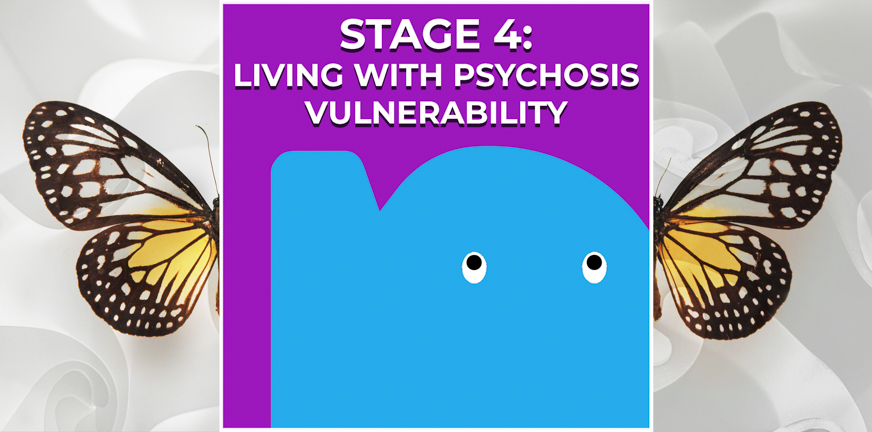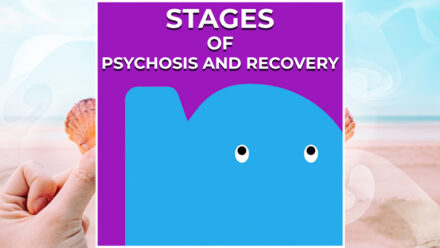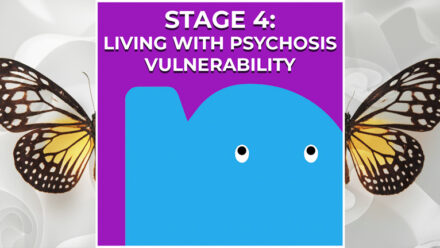
You want to get back to your old life again, but this is no easy task. Even normal things like buying food or calling a friend can be challenging at this stage. This doesn’t make you feel any better about yourself. You might just want to stay safely on the couch and do nothing. That only makes sense.
Fortunately, this stage will also make you realise you have strengths. After all: you are in the hard process of recovering from psychosis and go back to normal. That’s something to be proud of! Sooner or later, the moment will come that you get off the couch.
Motivational problems after psychosis
Motivational problems after psychosis can get worse because of medication. So keep these to a minimum. Keep an eye on your level of motivation and talk to your therapist about it. Psychiatrists are not always willing to lower the dosage, and indeed this is not without its risks. But still it is necessary to find out what your minimum dose is.
Some people can go without medication entirely – but this is difficult to predict without trying. Your use of medication is also something you can only learn through trial and error. Online tools for self-monitoring such as PsyMate can be a great help. If your therapists have any doubts about your medication, these tools can also provide with helpful information for when talking to them.
Recovering from psychosis
Recovering from psychosis and moving on with your life, is a long and difficult process. Recovering means: taking chances and discovering what your new limits are. Sometimes you have to go against the advice of parents or other people who are overprotective. All while you are learning to get back on your feet.
You first need a safe zone where you can feel secure and process the unpleasant things that have happened. But the next thing you notice, is that you have to get back out of this safe zone, to let your world grow larger. The big challenge then is to start feeling comfortable again. This way you are moving on with your life one step at a time, shaping your present and future the way you want to. Your life will never be exactly as it was after such an intense psychotic experience. But at this stage you are no longer lost, and moving forward again. The process of acceptance has begun.
Care providers
You are by now well aware of what happened to you, even though you still have many unanswered questions. You make decisions to prevent another crisis (or example, by using a crisis card) and work together with care workers and people with lived experience of psychosis. They help you get insight into your own mental processes, contribute to your continued recovery, advise on the do’s and don’ts of medication and on how to think about goals that make your life meaningful. They can also tell you about organisations that can help you on your path of recovery, like recovery colleges. Or recommend you talk to someone who also has been through psychosis: a recovery coach.
At this stage, it has already been a while since the crisis. There is a new balance, although it might feel strange and fragile at first. The more time passes since the crisis, the more normal your life becomes again. Feelings of guilt and embarrassment have faded, the damage that was caused is more or less repaired, even though some things may have changed forever.
There can be mourning and grief in this process, because you have lost part of yourself. Yet, gradually the experiences with the psychosis become embedded in your life. You possibly might even begin to see positive sides to what has happened. This is what the final stage of recovering from psychosis is about. Stage 5: Life beyond psychosis vulnerability.
Example
By now, Susan has gone back to work again. It’s well over two years since that day when all hell broke loose and she became psychotic. She still jokes about it to a befriended co-worker at lunchtime. “Remember when right before everything went all wrong, I showed up on your doorstep with a huge bouquet of flowers?” – “Yeah, that was so not like you!”
After her second psychosis, Susan found a different job, better suited to her. She now also works one day of the week less and stopped doing late shifts. This is an agreement she has made with her boss. Despite still being tired quickly, she has started a new hobby, painting. Once a week, on her day off, she goes to painting class at the empowerment centre downtown. She is considering trauma therapy, but isn’t sure if she is ready for that yet. She has met a recovery coach who has her age and understands her predicament.




